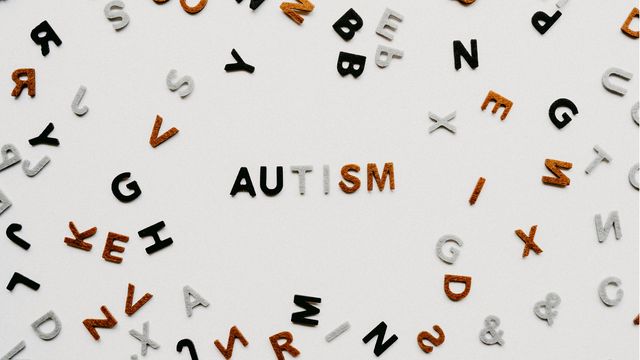Damage to the gut can promote behavior reminiscent of the social impairments associated with autism, a new study has found.
Scientists at the University of Utah Health (U of U Health) have shown that individuals with behavioral abnormalities might possess a microbiota that promotes inflammation while lacking microbial members that promote a healthy gut.
Published in the journal Nature Communications, the study demonstrated that the replacement of these microbes could alleviate both gastrointestinal (GI) symptoms and the behavioral changes they provoke.
“There are several studies in humans that demonstrate that individuals with autism are co-morbid for GI problems. In some studies, it is as high as 70% of individuals with autism that have GI symptoms,” Dr. June Round, a microbiologist at U of U Health who led the research told Technology Networks. “Similarly, individuals with IBD have been reported to have increased anxiety, anti-social behavior and memory loss. So, there is a well-established connection between gut inflammation and central nervous function.”
To investigate this relationship further, Round and her team studied mice with the inflammatory condition colitis. After several rounds of induced colitis, the mice’s symptoms were allowed to subside before behavioral testing was performed.
While the mice who had experienced colitis displayed no signs of anxiety or depression, they spent less time interacting with unfamiliar mice than those who didn’t experience colitis.
These findings suggested that gut problems might drive changes to social behavior reminiscent of those observed in individuals with autism. The researchers hypothesized that the microbes present in the gut which tend to differ between autistic and neurotypical individuals might be involved.
“Gut inflammation, even when it has been resolved, can have lasting effects on behavior,” said Round.
To investigate, stool samples from people with autism as well as from their neurotypical parents or siblings were delivered to the GI tracts of mice.
The researchers found that microbes from individuals with autism promoted more inflammation in the gut while the microbes from neurotypical individuals appeared to have a protective effect.
Microbial defenders of the gut
To understand which specific microbes protect against intestinal problems, the researchers analyzed the microbiota compositions of individuals with autism, their neurotypical family members and mice that had been transplanted with those microbial communities.
In doing so the researchers identified protective microbes underrepresented in people with autism. “It took a lot of time to identify relevant microbes as this required much bioinformatic analysis and not all candidates we tested had an effect,” explained Round.
Want more breaking news?
Subscribe to Technology Networks’ daily newsletter, delivering breaking science news straight to your inbox every day.
Two microbes were found to be of particular interest. Certain species of Blautia bacteria were better represented in neurotypical individuals. In addition, among mice colonized with microbes from autistic people, Bacteroides uniformis (B. uniformis) was more abundant in those whose colitis was less severe, suggesting a role in intestinal health.
When these bacteria were delivered to the mice before inducing colitis both Blautia and B. uniforms were shown to reduce intestinal problems. Additionally, animals that received Blautia were more likely to engage with unfamiliar mice following colitis.
“We identified a few microbes that were possessed by healthy individuals in the study that when given to mice could improve this colitis-associated behavior abnormality,” said Round. “So, this demonstrates that replacement of microbes in these individuals might help improve their behavioral problems which identifies a potential therapeutic.”
Personalized microbiome-targeting therapies
Researchers continue to untangle the relationship between the microbiome and health and behavior. “There is quite a bit of variation in the microbiota across individuals and we are still identifying what the function of these microbes are, with several microbes having redundant functions,” said Round.
Round hopes that knowledge obtained through this research could inform the choice of specific microbial entities that would be effective for use in personalized microbiome-targeting therapies.
“Ultimately I hope that we will know enough so that we can analyze a person’s microbes and identify important microbes that are missing and replace them,” said Round.
But to achieve this goal, there are still hurdles to overcome. The microbial community inside the human gut is complex and identifying the functions of the hundreds of kinds of bacteria, viruses and fungi will take considerable research efforts. Once the beneficial microbes are identified there then exists the challenge of growing these organisms so they can be given to individuals in defined cocktails.
Discussing the next steps for this research, Round explained how they are now pursuing the mechanisms behind how gut problems influence brain function. “We have identified particular immune cells that are present in mice that have experienced colitis that are absent in healthy mice,” said Round. “We believe that these immune cells might be causing damage. So we are trying to understand the mechanisms behind this.”
Dr. June Round was speaking to Blake Forman, Senior Science Writer for Technology Networks.
About the interviewee:
Dr. June Round works in the Department of Pathology at the University of Utah Health School of Medicine. Her research interests include investigating causal associations between gut microbes and health. This work extends into many areas of health including gastrointestinal diseases, colorectal cancer, neurological disorders and metabolism.
Reference: Brown DG, Murphy M, Cadeddu R, et al. Colitis reduces active social engagement in mice and is ameliorated by supplementation with human microbiota members. Nat Commun. 2024;15(1):2769. doi: 10.1038/s41467-024-46733-7
This article was originally published by a www.technologynetworks.com . Read the Original article here. .




